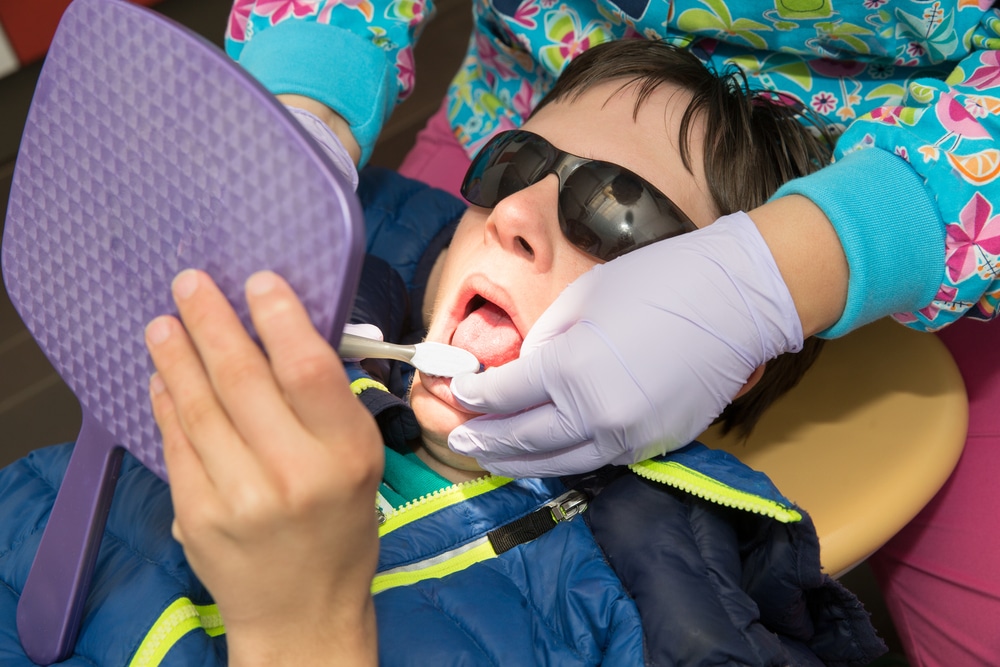What Is Special Needs Dentistry?


Special needs pediatric dentistry involves caring for tiny teeth with compassion, tact, and precision. Dentists who specialize in this kind of care ensure that a child’s oral health isn’t sacrificed, and they help set the stage for positive dental visits in the future.
Who Does Special Needs Dentistry Serve?
About 13 percent of children reportedly have special needs, but the term is intentionally vague and inclusive. We want children and their families to speak up about the things they need to remain comfortable, even if that means applying the term “special needs” widely.
In general, children with special needs have issues that are:
- Physical. Mobility challenges, slowed reflexes, or unusual sensory responses could impair a child’s oral health.
- Mental. Communication challenges, emotional regulation issues, or memory problems could impede a child’s oral care.
- Educational. A child might need more time to pick up a core concept, or the child might learn in a manner that’s unusual for children.
Special needs dentistry involves learning about what a child needs and reacting accordingly.
How Does Dentistry for Special Needs Work?
Special needs pediatric dentistry clinics have the tools, equipment, and staffers available to help children improve their oral health.
Routine oral examinations and cleanings are part of the treatment package. But a child with special needs might also need counseling about:
- At-home care. Physical limitations could make some oral tasks, like flossing, difficult. A dentist should offer workarounds.
- Medication interactions. Some treatments given to children with special needs can dry up salivary glands and otherwise impact oral health.
- Upcoming treatments. Children with complex medical needs may require multiple appointments, and that can cause anxiety. Doctors should be prepared to discuss these issues.
In addition to a skilled dentist, a child’s oral health treatment team might include:
- Caregivers. Parents and paid treatment teams often have insight into what the child needs now.
- Medical doctors. A child’s physical treatment team might have ideas about modifications that could improve oral health.
- Social workers. Some therapists could help a child stick to an oral health treatment plan.
Special needs dentistry teams should be skilled communicators who can manage conversations among so many people.
Find Special Needs Dentistry Help
You want the best for your child, and you want early oral health experiences to be as positive as possible. Finding the right dentist is part of that process.
We offer special needs pediatric dentistry in Florida, and we’d love to help your family. Find out more about what we offer here.
